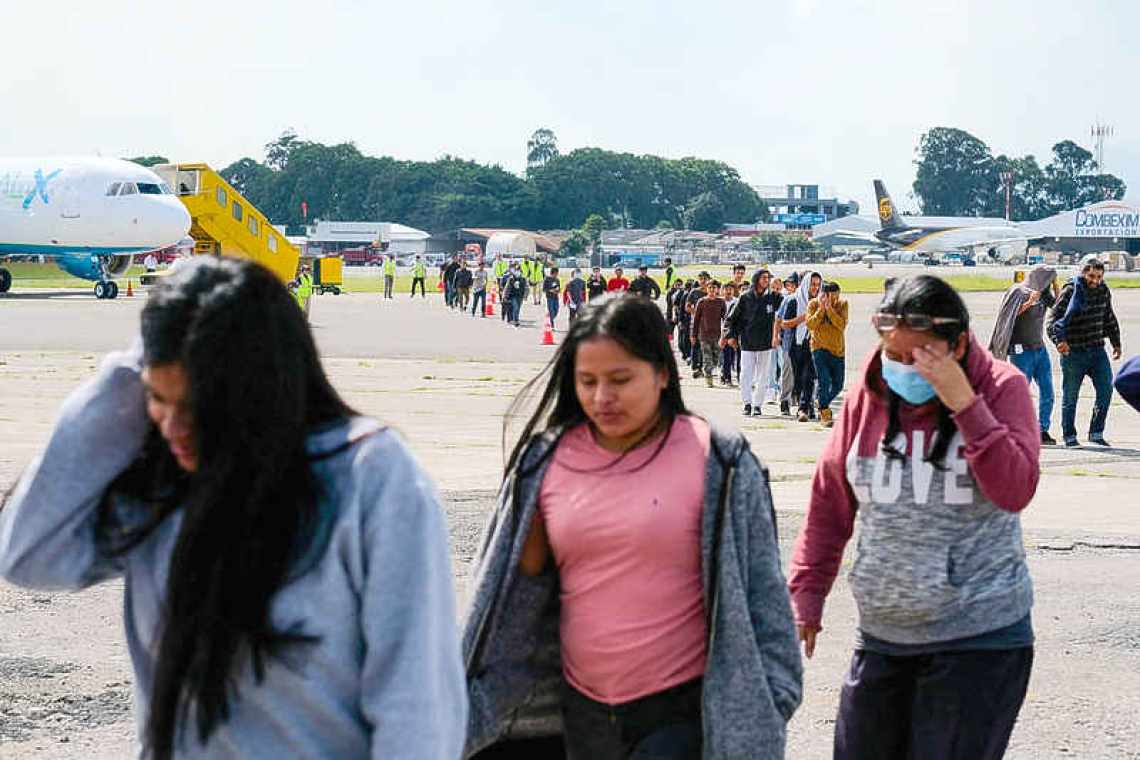MEXICO CITY--Guatemala is open to receiving citizens of other Central American nations who are deported from the United States, three sources familiar with the matter said, as the country looks to build a positive relationship with the incoming Trump administration. "There has to be a regional response," a Guatemalan official who requested anonymity told Reuters. "And we want to be part of the solution." The U.S. has struggled to deport nationals from places such as Nicaragua, Venezuela and Haiti due to strained relations. That could prove a challenge for President-elect Donald Trump, who has vowed to deport record numbers of immigrants living in the United States illegally. His team has already reached out to the governments of several countries to test their willingness to take deportees from third countries. Many U.S. neighbours, including Mexico and the Bahamas, have said they do not want to receive deportees from third countries. In 2022, more than 40% of immigrants living in the U.S. illegally came from Mexico, amounting to 4.8 million of 11 million overall, according to a U.S. Department of Homeland Security report. That was followed by Guatemala, El Salvador and Honduras, which together accounted for over one-fifth of the total. Guatemala has been particularly proactive in preparing for a second Trump term relative to neighbors El Salvador and Honduras, meeting with Trump transition team members, Senator Marco Rubio before he was tapped for secretary of state and the conservative Heritage Foundation think tank, about migration and mass deportations, border security, drug trafficking and China. All three countries, along with a Nicaraguan government that has the most openly hostile relationship with the U.S., face a moment of reckoning, both in handling Trump's demand they accept deportees and in a potential curtailing of remittances from immigrants in the U.S., which are a major contributor to their economies. The Trump transition team did not immediately respond to a request for comment. The Guatemala-U.S. meetings signal the center-left government of President Bernard Arevalo, a Biden administration ally, wants to start on smooth terms with the Trump administration, despite ties between Guatemala's conservative opposition and many in the president-elect's orbit. Trump's inauguration will happen on Jan. 20. El Salvador, whose populist President Nayib Bukele already has cozy ties with the Trump camp, has taken a less proactive approach. But a source close to discussions between Salvadoran officials and the transition team said the Trump administration foresees smooth cooperation with El Salvador on immigration. The Guatemalan official noted the country already receives 14 deportation flights per week under President Joe Biden and is preparing for an increase. Honduras' Deputy Foreign Minister Antonio Garcia told Reuters the country receives 10 deportation flights a week. Reuters was not able to confirm the number of deportation flights to other Central American countries. Guatemala expects a significant increase in deportations in the fall, based on the rationale that it will take time to ramp them up. "We aren't ready for it, but we know it's coming," a second Guatemalan government official said. Guatemala would prioritize Guatemalans for re-integration, the second official said, adding every country should take responsibility for its citizens, but also highlighting a regional pact among Honduras, Guatemala, Nicaragua and El Salvador that allows free movement. Guatemala's vision for deportees is to put their skills developed in the United States to work in the private sector, the person said. "These are people who have worked in construction, in the service industry, in various sectors, and many speak English. We want to harness that." In late November, Guatemala's security minister and migration director travelled to Washington, according to the three sources close to the matter, and met with Rubio and other key Republicans, where discussions covered drug trafficking, migration and deportations. They also met with the Heritage Foundation, whose employees staffed much of the first Trump administration. While they discussed immigration and deportations, the foundation mainly emphasized it wanted Guatemala to maintain its allegiance to U.S. ally Taiwan over China, the sources said. Officials know more deportations could strain Guatemala's economy if remittances drop and the cost of re-integrating deportees rises. Around 20% of Guatemala's GDP comes from remittances – money sent home by the diaspora in the United States. In 2023, remittances accounted for 24% of El Salvador's gross domestic product and nearly 30% of Honduras' GDP. Guatemalan officials said they are not worried about the immediate economic effects of a drop in remittances, but expressed concern about reduced remittances paired with Trump's proposed increased tariffs or taxed remittances. "We don't have a financial plan yet, there are just too many unknowns," said the second official. Guatemalan officials are analyzing surveys by the U.N.'s International Organization for Migration showing from which parts of Guatemala the most migrants departed, hoping to prepare those communities for their possible return, two officials said. The Salvadoran government said it would announce plans once the Trump administration takes action. "We work in facts and it's still all speculation," Vice President Felix Ulloa told Reuters.







